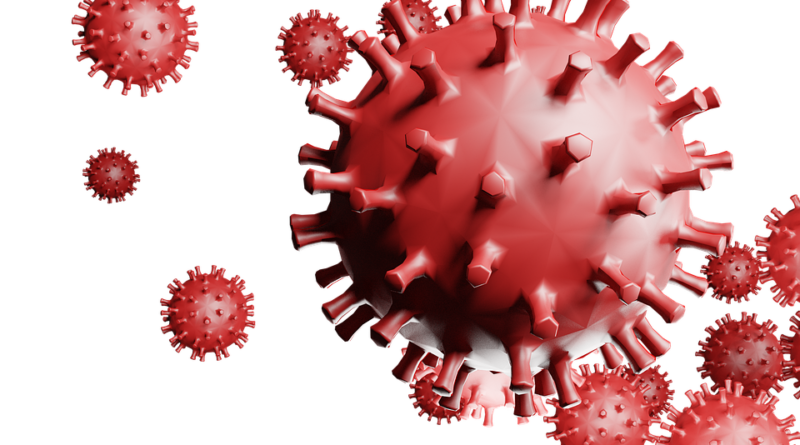COVID-19 testing and contact tracing to be conducted on campus
Contact tracing and testing to be done at UD this semester, photo of coronavirus courtesy of Pixabay.
Hannah Heil
Contributing Writer
To continue the fight against COVID-19, the University of Dayton will conduct regular testing and contact tracing in order to protect the UD community.
Doctor Mary Lou Zwiesler, a staff physician at the UD Health Center, will lead contact tracing on campus. She agreed to share information on what Flyers can expect this year.
The university has a total of seven contact tracers on campus who will routinely interview students, faculty, staff and other individuals on campus who have tested positive for COVID-19.
This will be done in order to identify close contacts who may become ill. It is essential, Zwiesler explains, to identify all contacts so that quarantine can be instituted, as this is the only way to break the cycle of transmission.
“The goal is to keep the campus as safe as possible so that on-site learning can continue,” Zweisler said.
Students can be tested for COVID-19 on campus, and any testing costs will be billed to the student’s medical insurance.
Students who are concerned about symptoms that are consistent with COVID-19 can be evaluated at the Health Center. In addition, a dashboard of positive COVID-19 cases on campus will be updated daily on UD’s website for campus members to monitor.
Students will be required to report any known or potential exposures to COVID-19 to the Health Center in a timely manner. Zwiesler said that this will be done as part of the Student Agreement that all students must sign.
The Student Agreement includes that individuals report their personal symptoms. Zweisler expressed that there must be strict adherence to this practice in order to protect the UD community.
“I fear that noncompliance would lead to a large outbreak of cases and that the campus would need to be closed and students would be sent home to finish the semester online,” Zweisler said.
When asked if UD will experience any limitations with contact tracing and testing, Zwiesler said that there is a possibility of delayed result reporting if the number of tests exceeds the lab capacity.
Contact tracers also rely on students to help identify close contacts to the best of their ability. Commitment to relaying information to contact tracers will be vital to protect the UD community.
Zwiesler ended the discussion by emphasizing that Flyers must remember the virus extends beyond UD’s campus.
“The most important message is that we are in the midst of a very serious pandemic,” Zweisler said.
UD’s lead contact tracer expressed that physical distancing of 6 feet or more, the consistent wearing of face masks (with the exception of one-way valve masks) and frequent hand washing are keys to cutting virus transmission.
Zweisler also expressed hopes that all Flyers embrace the university’s efforts as a community endeavor.
It will take a commitment from every member of the community, but when adversity strikes, Flyers have proven time and time again to rise to the task.

